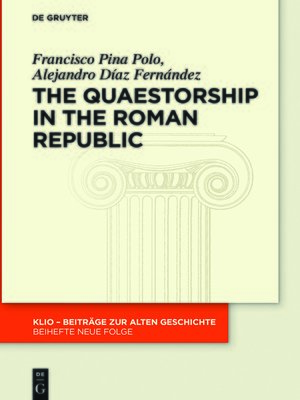
Sign up to save your library
With an OverDrive account, you can save your favorite libraries for at-a-glance information about availability. Find out more about OverDrive accounts.
Find this title in Libby, the library reading app by OverDrive.



Search for a digital library with this title
Title found at these libraries:
| Library Name | Distance |
|---|---|
| Loading... |
The lack of evidence has proved to be the greatest obstacle involved in reconstructing the quaestorship and has probably discouraged scholars from undertaking a large-scale study of the office. As a consequence, a comprehensive study of the quaestorship has long been a desideratum: this book aims to fill this gap in the scholarship.
The book contains a study of the quaestorship throughout the Roman Republic, both in Italy (particularly at Rome) and in the overseas provinces. It includes a history of the office, an analysis of its role within the cursus honorum and its larger importance for the Roman constitution as well as the prosopography of all quaestors known during the Republican period based on the literary, epigraphic and numismatic evidence.
The quaestorship was always an office for beginners who aspired to follow a political career and hence served as institutional entrance to the senate. Despite their youth, quaestors were endowed with functions of great significance at Rome and abroad, such as the control and supervision of Rome's finances. As the book shows, the quaestorship was a prominent and essential part of the Roman administration.
The book contains a study of the quaestorship throughout the Roman Republic, both in Italy (particularly at Rome) and in the overseas provinces. It includes a history of the office, an analysis of its role within the cursus honorum and its larger importance for the Roman constitution as well as the prosopography of all quaestors known during the Republican period based on the literary, epigraphic and numismatic evidence.
The quaestorship was always an office for beginners who aspired to follow a political career and hence served as institutional entrance to the senate. Despite their youth, quaestors were endowed with functions of great significance at Rome and abroad, such as the control and supervision of Rome's finances. As the book shows, the quaestorship was a prominent and essential part of the Roman administration.







